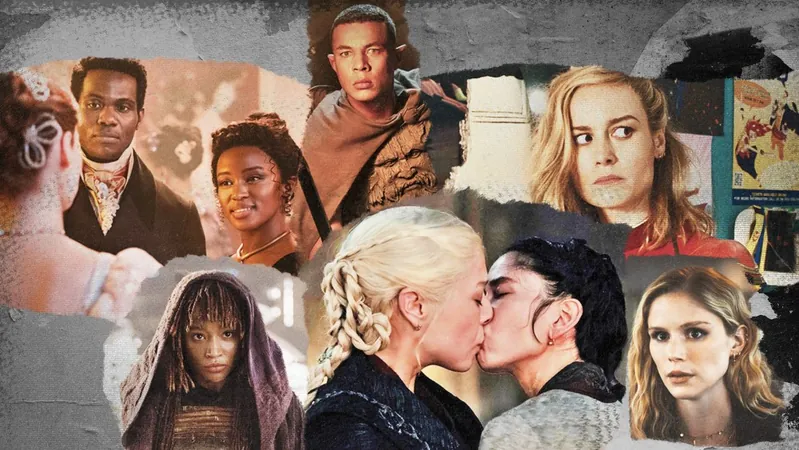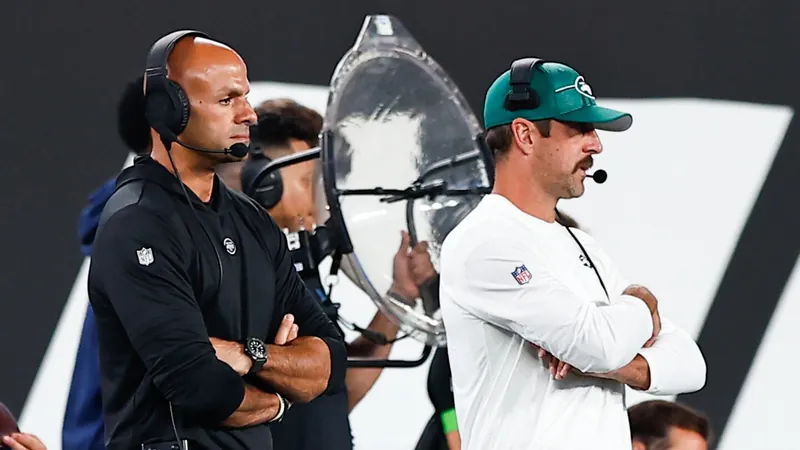
Toxic Fandom: Hollywood's Struggle Against Hostile Fans and How They're Fighting Back
2024-10-03
Toxic Fandom: Hollywood's Struggle Against Hostile Fans and How They're Fighting Back
In a dramatic turn of events, Amandla Stenberg, the star of the highly anticipated “Star Wars” series “The Acolyte,” expressed her dismay on social media about Lucasfilm's decision to cancel the show after just one season. In a candid eight-and-a-half-minute video shared on Instagram Stories, she revealed how the project had been under siege since its announcement in 2020, subjected to a torrent of “hyper-conservative bigotry and vitriol.”
Stenberg’s experience embodies a broader issue plaguing the entertainment industry—what has come to be known as “toxic fandom.” This term describes the phenomenon where constructive criticism morphs into an organized campaign of hate against creators and projects, threatening the sustainable success of franchises that rely heavily on their established fanbases.
A senior marketing executive from a major film studio commented, “The fans are ruthless, and their expectations can be unrealistic. They are willing to attack anyone who deviates from a perceived ‘purity’ of their beloved franchises and will do everything in their power to tear down any new interpretation.”
Toxic fandoms often employ a strategy called “review bombing,” where fans flood sites like Rotten Tomatoes and IMDb with negative reviews in retaliation against perceived slights. Examples include backlash against episodes of "House of the Dragon" featuring LGBTQ+ representation and the series “The Last of Us,” which faced similar hostility. This behavior reflects a disturbing trend that has gained prominence ever since the release of “Star Wars: The Last Jedi” in 2017, putting immense pressure on networks and creators alike.
The ramifications of toxic fandom extend beyond mere outrage; they can have a chilling effect that often suppresses diverse voices in storytelling. A Reddit thread exploded with criticism when it was announced that a Black actress would play a love interest in “Bridgerton,” while racist vitriol was directed at actors of color featured as elves and dwarves in “The Lord of the Rings: The Rings of Power.”
Interestingly, industry insiders note that most fans remain casual viewers, which underscores a troubling irony: a small but vocal minority often shapes the conversation, overshadowing the majority. John Van Citters, VP of Star Trek brand development, remarked, “The number of dedicated fans is infinitesimally small compared to the broader audience, yet their voices are amplified like never before.”
In an attempt to manage this intense scrutiny, studios are taking proactive measures. Preemptively addressing the possibility of backlash, they are now conducting focus groups made up of superfan audiences to gauge reactions to marketing strategies and story arcs. “If there’s any indication that an idea will trigger negative responses, adjustments will be made,” one studio executive relayed.
Moreover, social media boot camps have become a staple for actors, especially those cast in roles that challenge established norms. In dire situations, studios may take over an actor's social media accounts to shield them from online hostility. Such measures were notably highlighted when “Obi-Wan Kenobi” star Moses Ingram revealed she had received countless racist messages. In response, Lucasfilm stepped up, releasing a powerful statement against hate and racism in the fandom community.
As studios grapple with the complexities of toxic fandom, some stars have found solace in simply avoiding social media. Marvel star Elizabeth Olsen shared her strategy: “I choose not to be online and keep my focus on the positive impact of our work.”
In a landscape where creative expression is continuously at risk from angry fanbases, Hollywood is forced to adapt. The challenge ahead lies in striking a balance between staying true to fan expectations while fostering a more inclusive atmosphere that promotes artistic innovation. Will they succeed in transforming toxic fandoms into constructive conversations? Only time will tell, but one thing is certain: the battle is far from over.




 Brasil (PT)
Brasil (PT)
 Canada (EN)
Canada (EN)
 Chile (ES)
Chile (ES)
 España (ES)
España (ES)
 France (FR)
France (FR)
 Hong Kong (EN)
Hong Kong (EN)
 Italia (IT)
Italia (IT)
 日本 (JA)
日本 (JA)
 Magyarország (HU)
Magyarország (HU)
 Norge (NO)
Norge (NO)
 Polska (PL)
Polska (PL)
 Schweiz (DE)
Schweiz (DE)
 Singapore (EN)
Singapore (EN)
 Sverige (SV)
Sverige (SV)
 Suomi (FI)
Suomi (FI)
 Türkiye (TR)
Türkiye (TR)